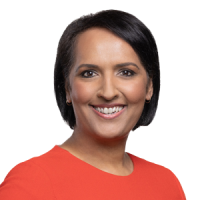He’s just 38-years-old, he’s been lauded by the likes of GQ and Buzzfeed as one of the country’s best dressed politicians and he’s the first person of colour to lead a Canadian federal party.

Now, newly minted NDP leader Jagmeet Singh is introducing himself to western Canadians as he tours the country ahead of the 2019 election.
On Friday, he joined CKNW’s Jon McComb to talk policy and his goals for Canada.
LISTEN: Federal NDP Leader Jagmeet Singh speaks with CKNW’s Jon McComb
Policy priorities
It’s impossible for any politician to address British Columbia without wading into the contentious debate around housing, and Singh is no different.
The NDP under his leadership would implement a three-point plan to address the housing crisis that he described as national in scope, not just Vancouver and Toronto’s problem.
That plan would include funding a national housing strategy focused on building more units. An NDP government would also build more co-op housing and aggressively target speculation in the housing market, Singh said.
“Some of the commodification of housing that’s resulted in just astronomical increases in terms of pricing,” Singh said.
WATCH: Canadians imprisoned for pot possession is ‘offensive’: Jagmeet Singh

“We’re seeing young professionals that are unable to even rent housing in urban settings.”
Singh added that he is open to restricting foreign ownership in real estate, so long as it’s done in a way that still encourages investment and economic development.

Get breaking National news
The New Democrats’ new leader is also pledging to implement a national pharmacare program to help Canadians pay for prescription drug costs.
“We’re one of the only countries in the world that has a universal health care system without a universal pharmacare system,” he said.
WATCH: Jagmeet Singh to tackle equality, electoral reform as NDP leader

Paying for promises
Regarding the his big-ticket pharmacare pledge, Singh argues the program — which would apply to millions of Canadians — would actually save the government money.
“It’s actually an investment that will actually generate a return. It will lower costs. So when we look at it as a cost only, it’s not doing full justice to the plan,” he said.
However under his leadership, Singh said the NDP would not be afraid to tinker with tax policy to “make sure the tax system is more fair” and raise new revenues.
But Singh was quick to differentiate his tax plan from that of the Trudeau Liberals, whom he said were punishing small businesses and the middle class.
Instead, he said it would target two areas where he asserted the wealthy have been getting a free pass.
WATCH: NDP’s Jagmeet Singh says Quebec’s religious neutrality bill ‘violates human rights’

Experience
As one of the youngest major federal party leaders in Canadian history, Singh has also faced accusations of youthful inexperience.
That’s a characterization he said is unfair.
Singh has a bachelor’s degree in biology, a law degree from the prestigious Osgood Hall law school and six years under his belt as a practicing lawyer. He’s also been elected as a Member of the Ontario Provincial Parliament, where he served both as deputy house leader and deputy party leader.
“I’ve got some experience and I’ve got some educational background that will help me guide me through legislation and how it will impact our country,” Singh said.
WATCH: Jagmeet Singh responds to racist heckling

Religious faith
Singh, an observant Sikh and the first Ontario MPP to wear a turban in that province’s legislature, has inevitably faced questions about his faith since his election to party leader on Oct. 1.
In a pivotal moment in his campaign, he was even attacked for allegedly supporting Islamic Sharia law; his calm answer to the attack went viral and is attributed by some with helping build momentum in his winning leadership campaign.
But as a man whose religious faith informs his political ideals, is he capable of separating the two when it comes to policy-making?
“Absolutely,” Singh told McComb. “One of the founding beliefs as a Sikh is that we are all connected and we’re all one, but more importantly, that we need to defend the rights of all people.
“So when we talk about the LGBTQ community, when I talk about the rights of women, when I talk about the rights of any marginalized people it comes from this deep understanding of the connection of all people, that we’re all one and that we’re all connected.”












Comments